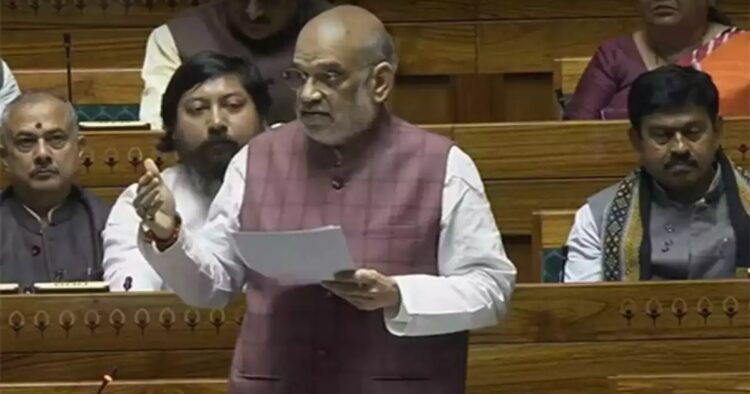In a significant development, Union Home Minister Amit Shah has introduced three new criminal law bills in the Lok Sabha, signaling a major overhaul of the legal framework. Among the key changes proposed, one of the most noteworthy is the provision for the death penalty for the crime of mob lynching.
In a historic move, Shah also announced the decision to abolish the sedition law, a relic from the British era that had been used to incarcerate Bharatiye freedom fighters such as Tilak Maharaj, Mahatma Gandhi, and Sardar Patel. This marks a departure from a law that has persisted for decades.
The proposed legislation, collectively known as the Bharatiya Nyaya Sanhita Bill, 2023, the Bharatiya Nagarik Suraksha Sanhita Bill, 2023, and the Bharatiya Sakshya Bill, 2023, aims to shift the focus from punishment to justice, as emphasized by Shah.
A significant aspect of the proposed laws is the emphasis on strengthening police accountability. Shah highlighted the requirement for detailed records of arrested individuals at every police station, managed by designated police officers. This move aims to instill a sense of responsibility and transparency within law enforcement.
In a bid to address gender-specific concerns, the government has made trafficking laws gender-neutral, ensuring a more inclusive legal framework. Additionally, the new laws stipulate that the rape of a girl under 18 years of age will automatically trigger the application of Protection of Children from Sexual Offences (POCSO) equivalent provisions.
Another groundbreaking aspect of the proposed legislation is the introduction of a clear definition of terrorism. Shah emphasized that, for the first time, the Modi government seeks to define terrorism in legal terms, closing any loopholes that might be exploited.
Overall, the proposed legislative changes represent a comprehensive effort to modernize and reform India’s criminal justice system, focusing on justice, accountability, and inclusivity. The bills are currently under consideration in the Lok Sabha, and their potential impact on the legal landscape is generating widespread discussion and anticipation.

















Comments